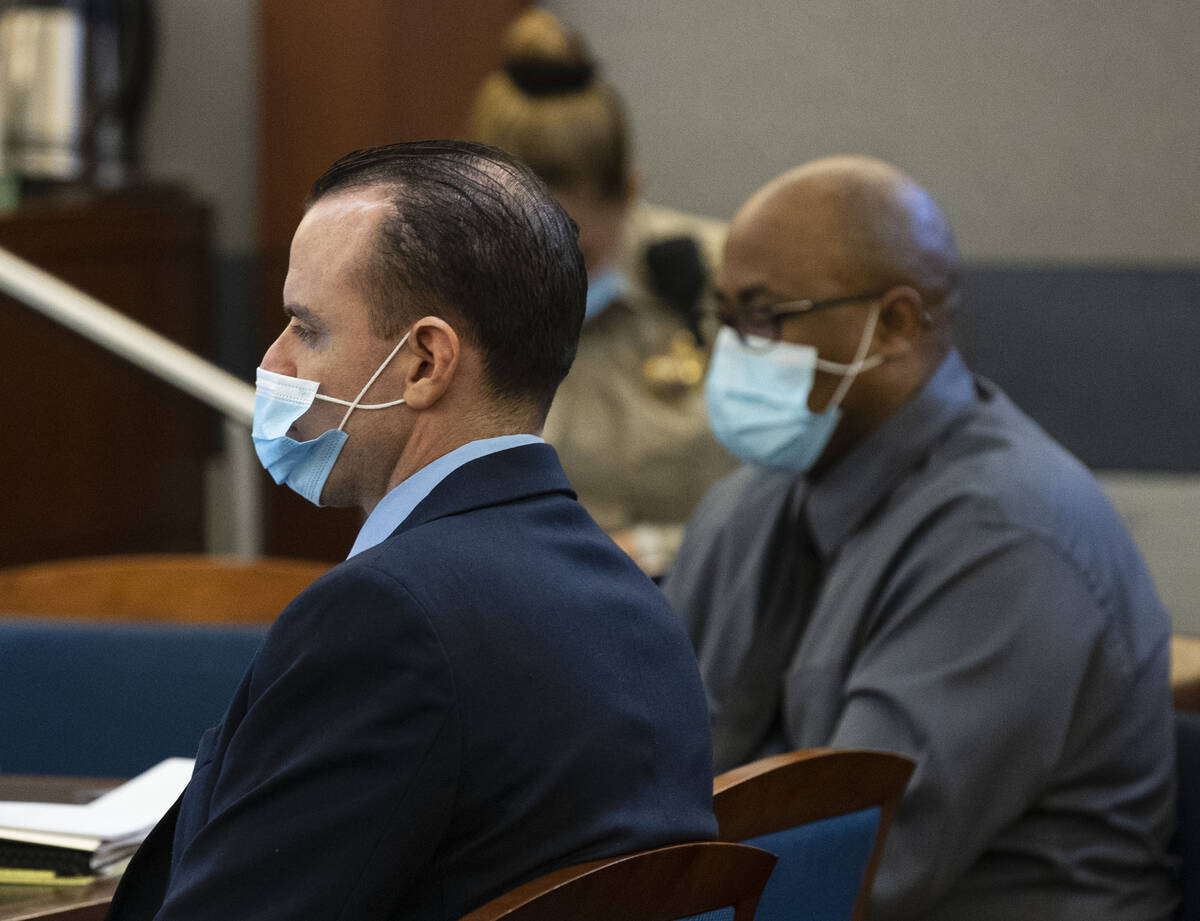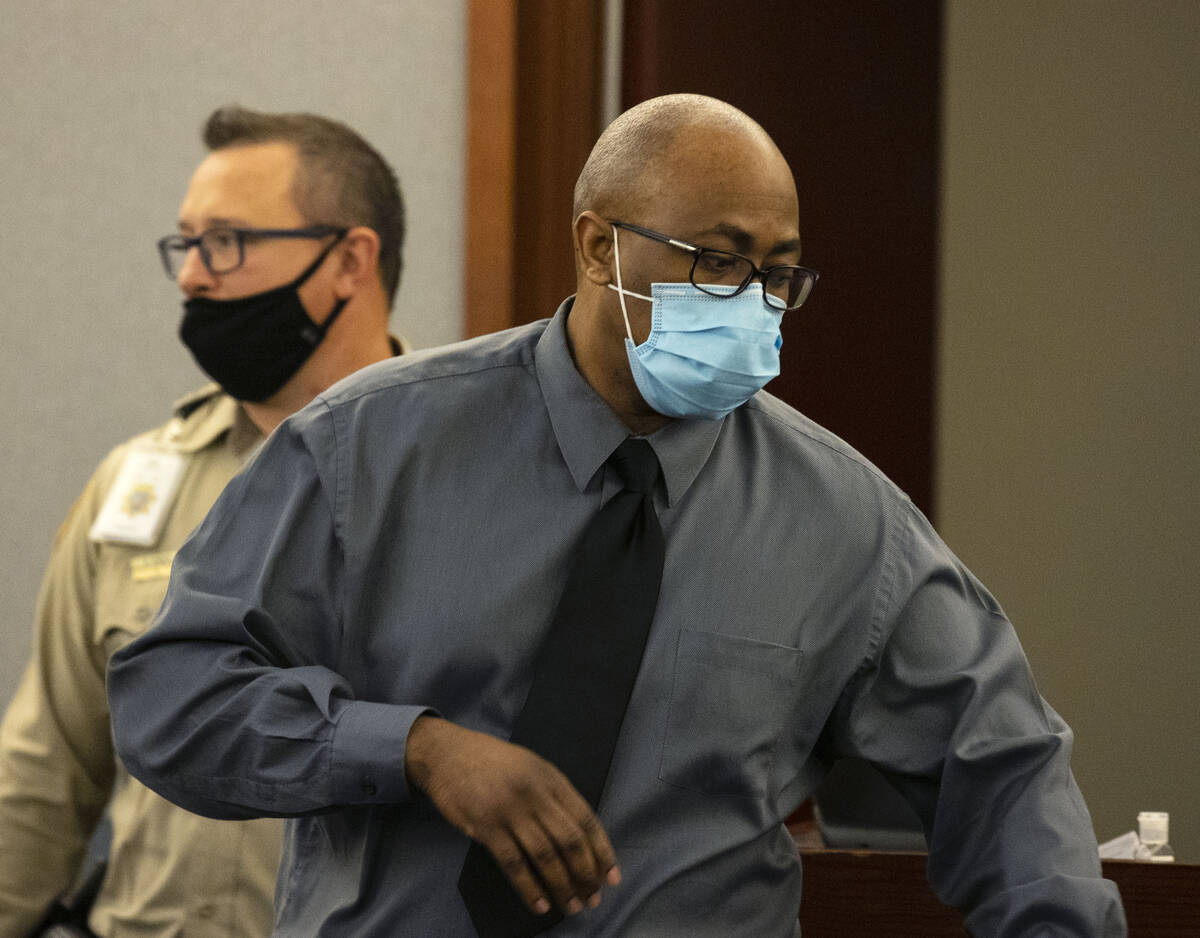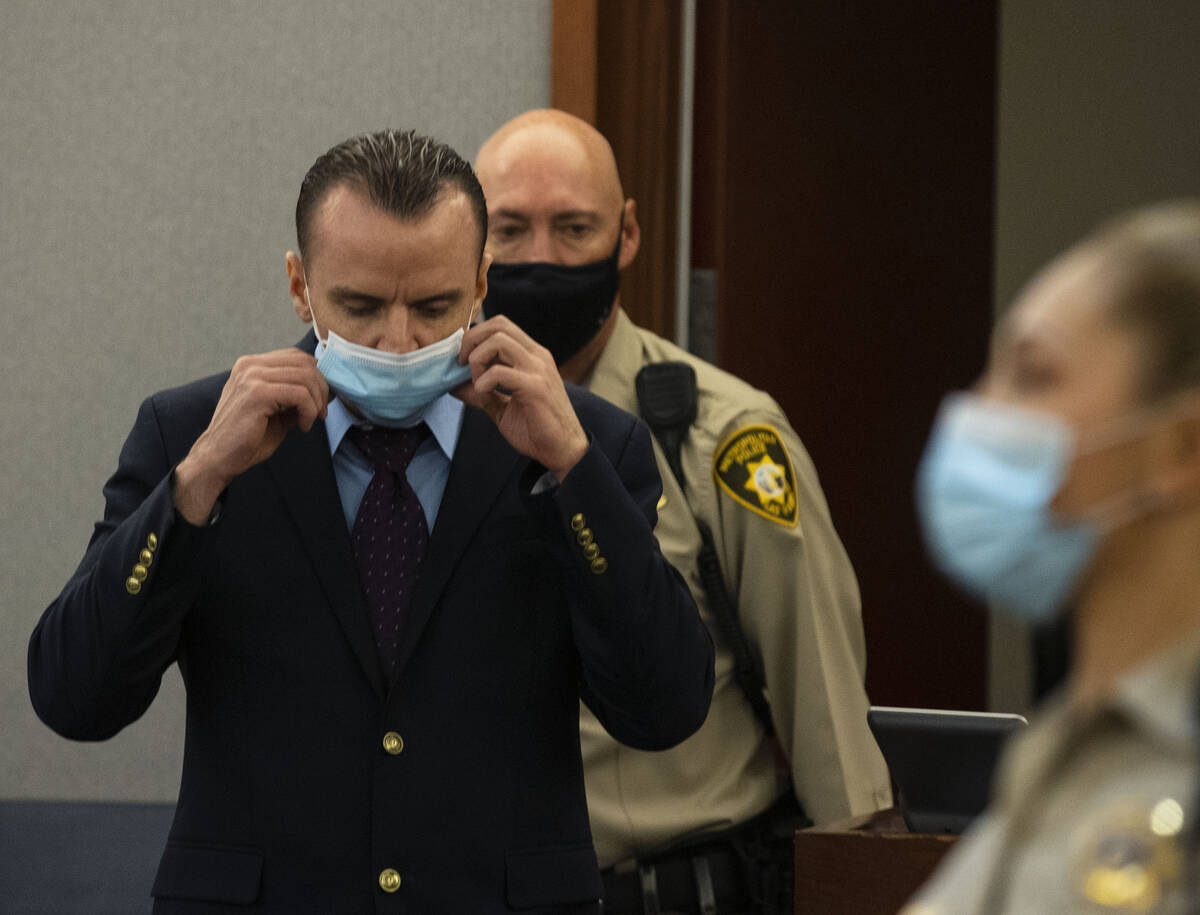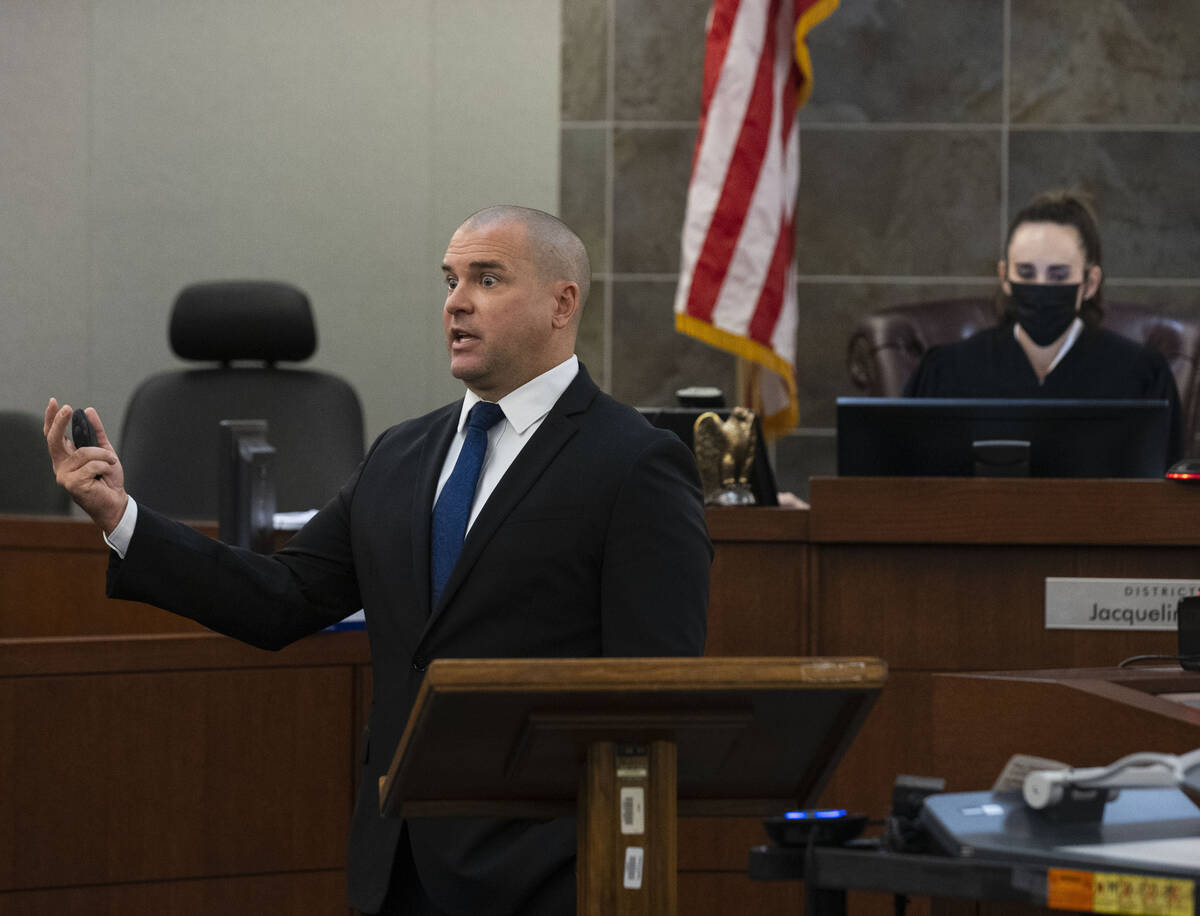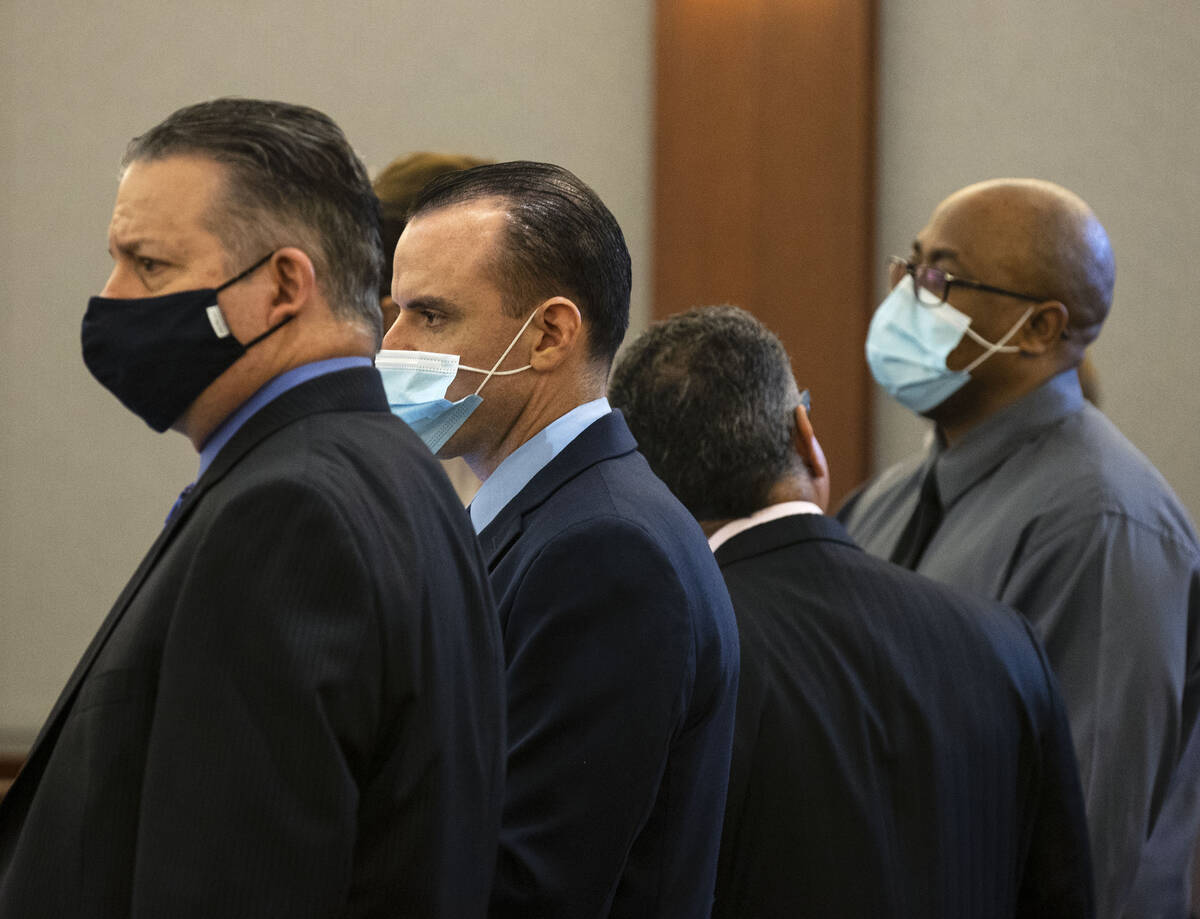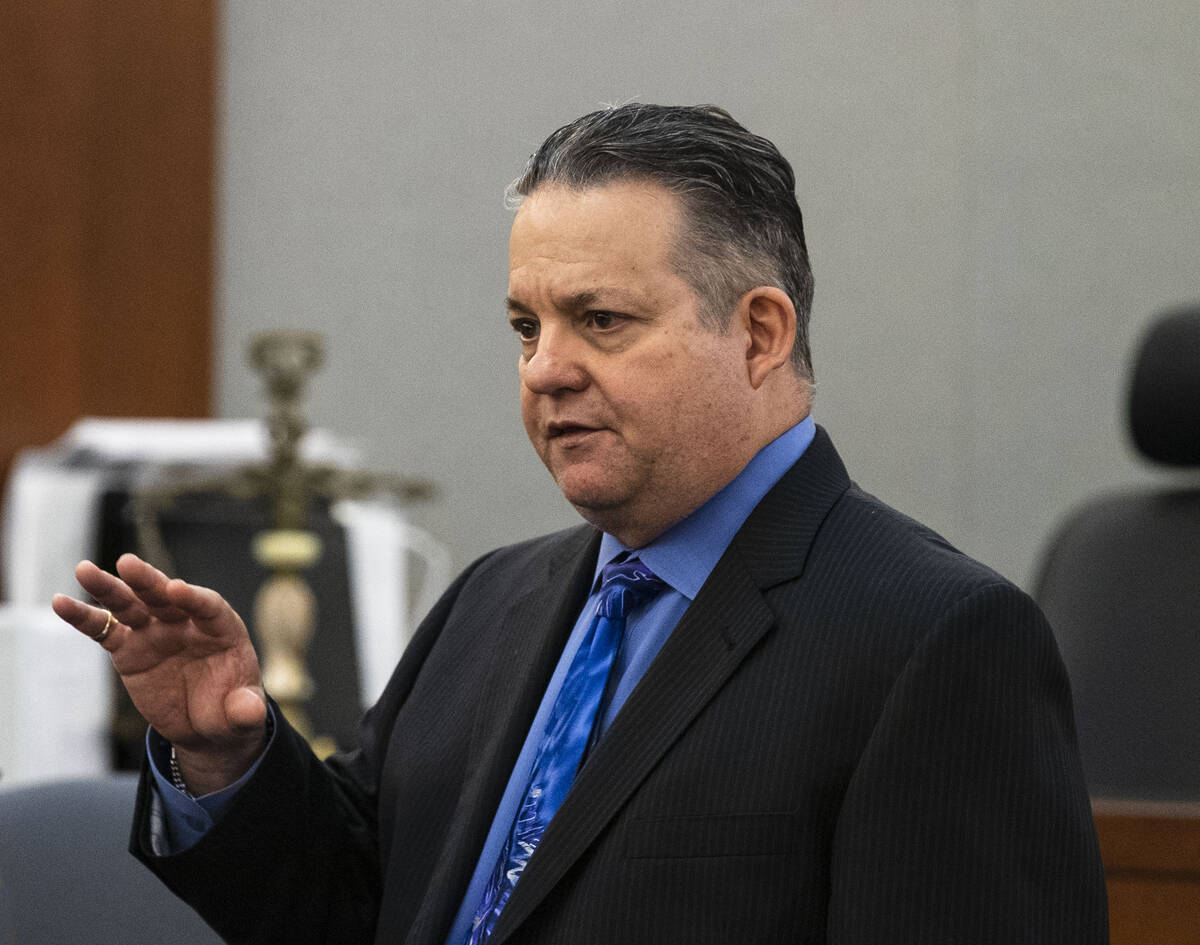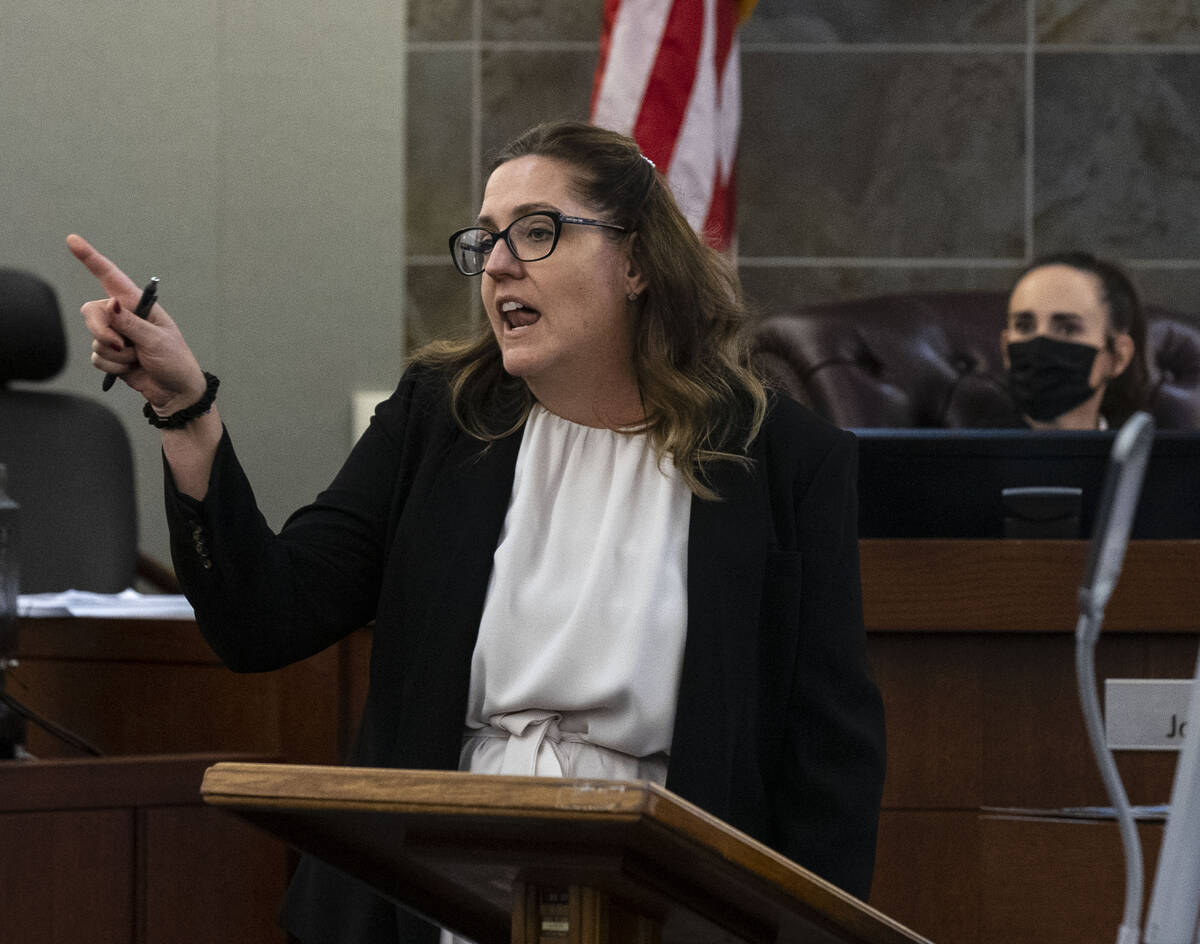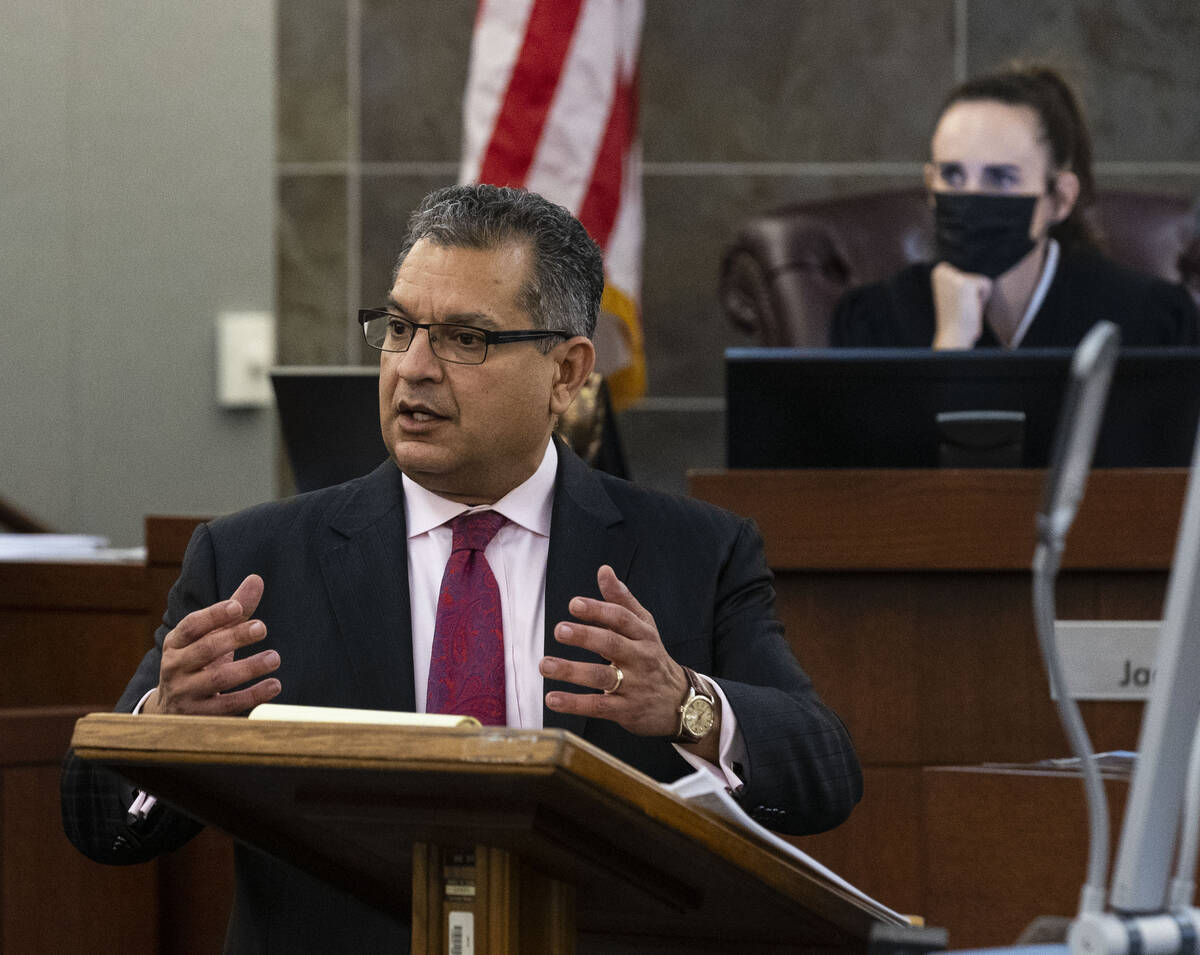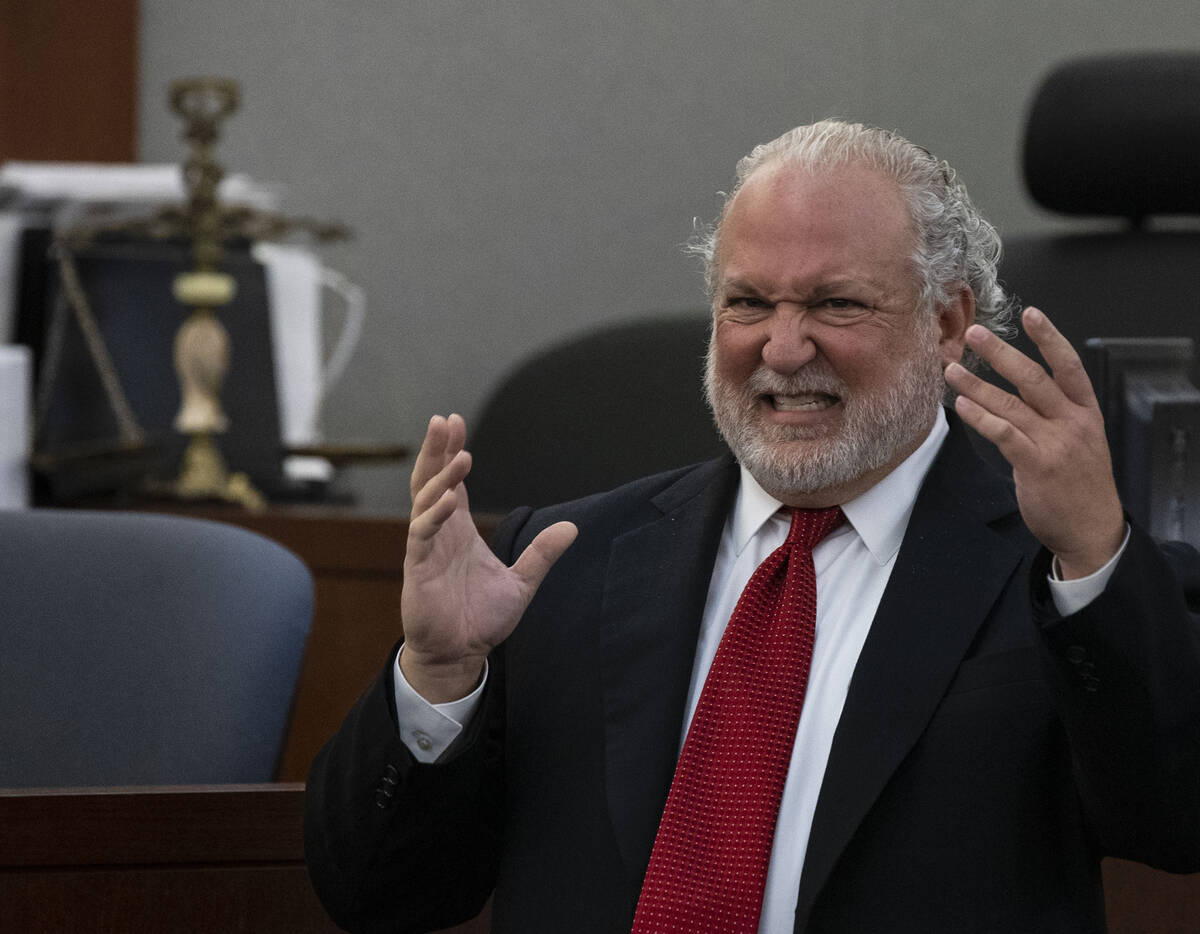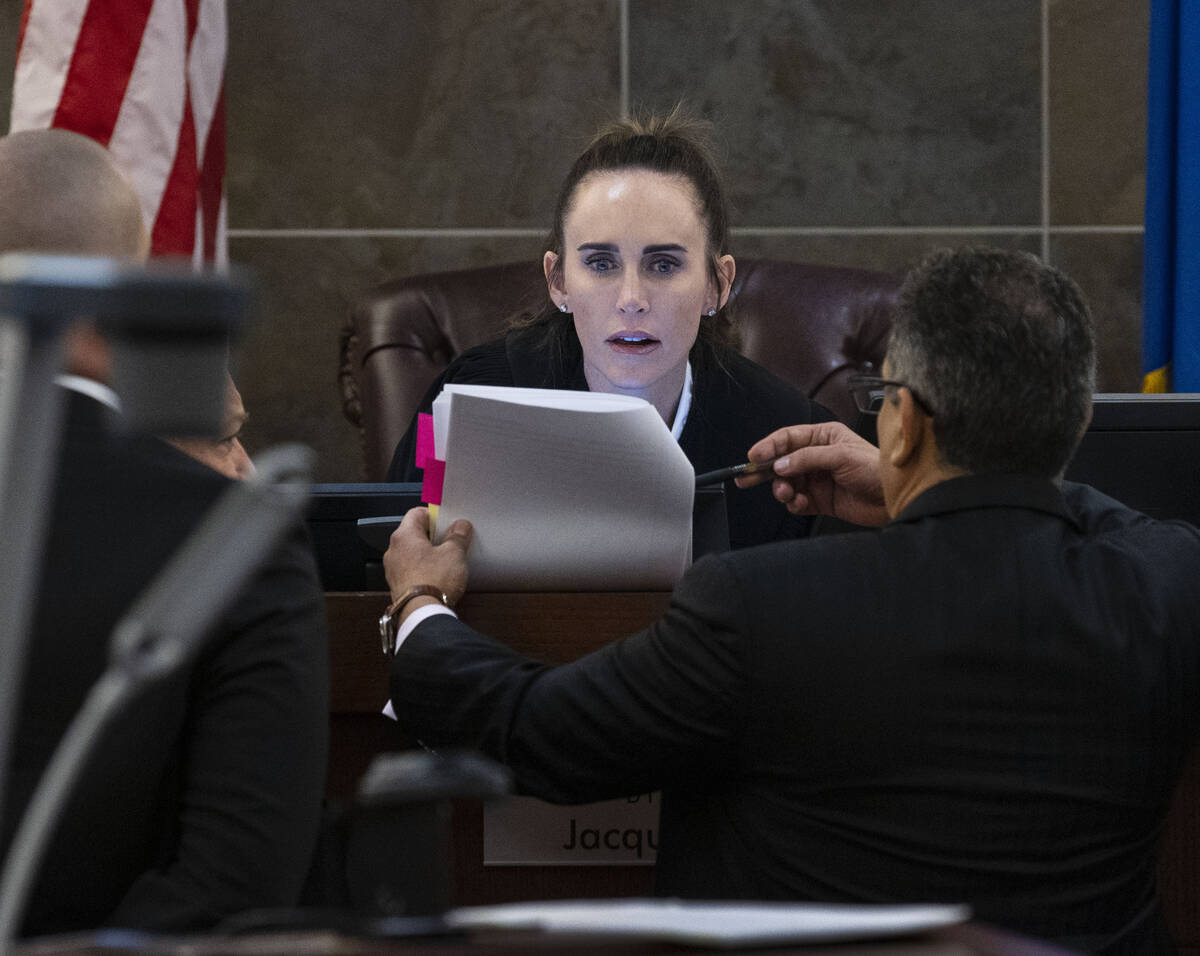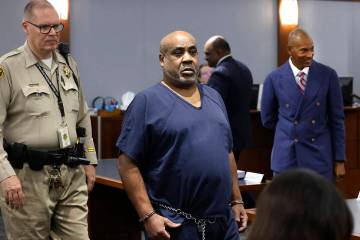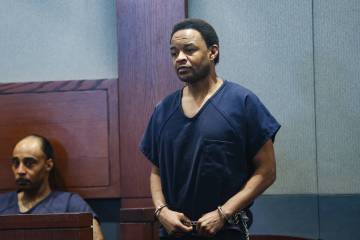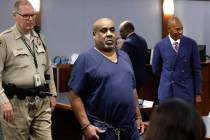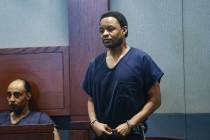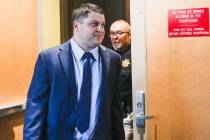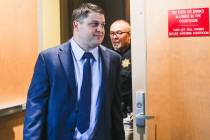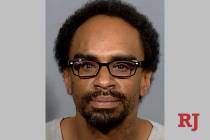Jury weighs death penalty in Las Vegas slaying
Decades before Cortrayer Zone shot and killed a man in Las Vegas, he was severely abused and starved by family as a child in a small Louisiana town, defense attorneys said Thursday.
Because of the trauma, he became an adult with severe mental illness and “borderline intellectual functioning,” attorney Betsy Allen argued before a jury began deliberating whether Zone should receive the death penalty.
“I am not minimizing what he did,” Allen said. “But I am here telling you that when you hear about someone’s childhood and it is this, what you have heard in the last few days, what do you think is going to happen?”
The abuse started when Zone was 6 in his aunt’s home, where he and his siblings were raised after his mother’s death.
Now 43, Zone and 33-year-old Michael Rusk were found guilty last week of first-degree murder with a deadly weapon and conspiracy to commit murder for the killing of 34-year-old Clarence McQuarters.
On June 10, 2016, Rusk drove Zone to confront McQuarters, prosecutors have said, because Zone thought his girlfriend was cheating on him with the other man.
The friends waited at McQuarters’ apartment complex for more than an hour before shooting him in the parking lot. Rusk was also found guilty of home invasion and robbery stemming from crimes after the shooting, while Rusk was running from police.
Defense attorney Christopher Oram argued Thursday that Zone suffered from discriminatory prosecution because Zone, who is Black, faced capital punishment while Rusk did not, even though both were found guilty of murder.
“One of the questions I think probably we as a society should ask: Would we execute a Black man for the same crime that a white man has committed, and would we execute a white man as well?” Oram asked jurors.
Oram said the only difference between the defendants was Zone’s lengthier criminal history. Prosecutors have argued that Zone, a documented gang member, was responsible for a “reign of terror” that started in 1995 and included multiple shootings and domestic violence incidents.
In 2013, Zone was caught in a different love triangle when he became jealous with his girlfriend and beat another man with a metal pipe, Chief Deputy District Attorney John Giordani said.
Later that year, he believed the same girlfriend was cheating on him with another man, who Zone shot and injured, Giordani said. He served 2 1/2 years in prison for the shooting, but shot and killed McQuarters two months after he was released.
“Nothing — no bad childhood, no level of violence in the childhood — can outweigh the level of violence that (Zone) has inflicted upon our community for the last couple of decades,” Giordani said Thursday.
Allen said Zone and his siblings were kept in filthy conditions, forced to eat food off the floor and often hid under the home’s porch. When his sister told school officials in Bunkie, Louisiana, about the abuse, no one helped the children, Allen said.
Zone turned to drugs as an adult because of the trauma, Allen said. He was later diagnosed with multiple mental illnesses and suffered from hallucinations. Allen said he was able to function well in the structure of prison and was an “unremarkable prisoner.”
On Wednesday, Zone stood up next to his attorneys and read a brief statement to the jury, while his family members in the courtroom gallery cried behind him. He apologized for “the things I’ve done” and asked for the chance to return to his job in prison sweeping floors.
“Please give me a chance to do something right,” Zone said. “Please let me live.”
Contact Katelyn Newberg at knewberg@reviewjournal.com or 702-383-0240. Follow @k_newberg on Twitter.



